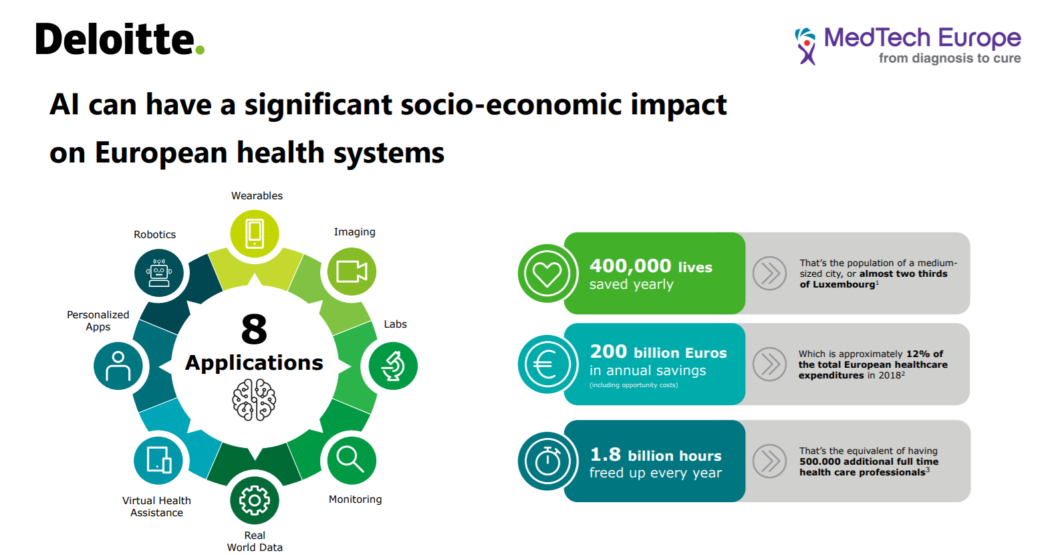The socio-economic impact of AI in healthcare: Addressing barriers to adoption for new healthcare technologies in Europe
Evolving technologies such as AI have the potential to assist European health systems in responding to major challenges they face. AI technologies can empower people, for example by helping citizens to be more informed and make healthier choices, and by supporting doctors in diagnosis and treatment decisions. Estimating the socioeconomic impact of AI on European health systems is fundamental to advancing the current discourse on the role AI can and should have in health.
This study covers AI applications that can be used across the entire patient journey. Eight application categories are mapped: wearables, imaging, laboratory applications, physiological monitoring, real-world data, virtual health assistance, personalised apps and robotics. The socio-economic impact is quantified through impacts on health outcomes, financial resources and time spent by healthcare professionals (HCPs). By estimating the number of saved lives, the cost savings and the hours freed up for HCPs, it is possible to quantify the potential impact of AI on Europe’s healthcare systems.
AI could have a substantial socioeconomic impact in healthcare by improving patient outcomes and access, and optimising the use of resources. However, to unlock its full potential, European health systems and the broader ecosystem need to make improvements in a number of areas, including the ways such technologies are evaluated and reimbursed, workforce skills and training, and data interoperability and ownership. These barriers can be overcome with the collaboration of all stakeholders in the ecosystem: policymakers at all levels (EU, national and regional), healthcare providers, academia, industry and citizens.
With this broad partnership, AI innovation and adoption can help ensure high-quality care for European citizens and put the EU at the forefront of a very innovative industry.
Posted on 26.10.2020



